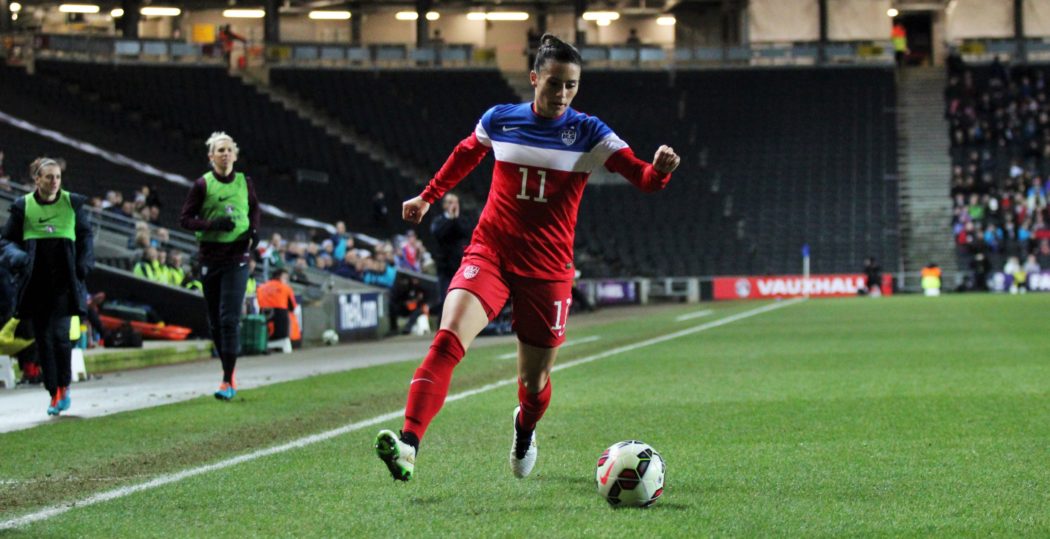Opinion: Addressing the gender pay gap in sports
It’s no secret that female athletes get paid significantly less than their male counterparts. But why the huge pay gap?
Some say it is because women are biologically and physiologically weaker than men, others argue that watching women play sports is less entertaining. The truth is science and entertainment value have little to do with the disparity. Instead, it is a byproduct of myths and outdated societal norms.
The argument that the female body is weaker than the male body is unequivocally false.
Female athletes have proven time and time again that women are just as physically and mentally tough as men.
In 2020, Pam Reed became the first person on record to run 300 miles with no sleep. In 2019, Sarah Thomas became the first and only person to swim the English Channel four times despite being stung in the face by a jellyfish. Susan Butcher was the first musher, male or female, to win the Iditarod trail sled dog race three years in a row.
It is hard to imagine suggesting that any of these women are weak, fragile, or physiologically inferior. While these women are incredible, their bodies are not special. All women are just as strong and capable.
Even though women have shown their strength and durability time and time again, their accomplishments and performances are diminished because women are not usually setting records in mainstream sports — yet.
The problem with mainstream sports, like basketball, football, soccer, and baseball are that they are sports made by men for men. They are also sports that women were denied full access to until much later than men.
It wasn’t until 1971, the NBA’s 25th anniversary, that female basketball players were allowed to play 5-on-5 full-court basketball. Men had a 25-year-old national league before women were permitted to run the full court.
Women have a major disadvantage in mainstream sports, like basketball, not because of their biology but because they haven’t been playing the game as long as men.
It is obvious that women have had to start from behind, but they have proven that they are capable of catching up.
Women’s soccer was not played in the U.S. in a majority of colleges until the 1980s but now the U.S. Women’s soccer team is one of the best in the world. Recently, U.S. Women’s soccer team surpassed the men’s team in popularity, wins, and entertainment value. In fact, the 2019 Women’s World Cup garnered 14.3 million U.S. viewers topping the men’s 11.4 million in 2018.
Despite its falsity, female athletes are told, either bluntly or inadvertently, very early on that they will never be as good men. The discrimination can begin as early as elementary school when girls are barred from the class soccer, football, baseball, and basketball games at recess by their peers, even though at that age boys’ and girls’ physiology is essentially the same.
The stigma continues throughout middle school, high school, college, and into the pros. Professional male athletes largely outearn female athletes in every sport, even sports like soccer where the women’s team brings in more money than the men’s.
Female athletes play the same games as men but they do it without the fame, money, and pandering that the men receive. None of them choose their profession for any other reason than a pure love of their sport.
Isn’t that what makes a real athlete?
At the end of the day, our favorite athlete is the underdog. We all love a good story about a kid from the middle of nowhere who was told they weren’t strong enough or good enough but who had enough heart to make it big.
Female athletes everywhere are the underdog because society has placed them in that role. Every day at every game, meet, match, and competition they show us that they are just as entertaining, strong, and impressive. We just need to put our biases aside long enough to show up and watch them.
Women can and do beat men, and women can and do bring in more money than men. So why are they still making less? There is no logical reason. It is time we all start investing our time, money and energy into the wonder women who play sports.

Addy Kirkham is a senior studying English with an emphasis in literary analysis. She enjoys reading, running, and mountain biking.
addy.kirkham@usu.edu

